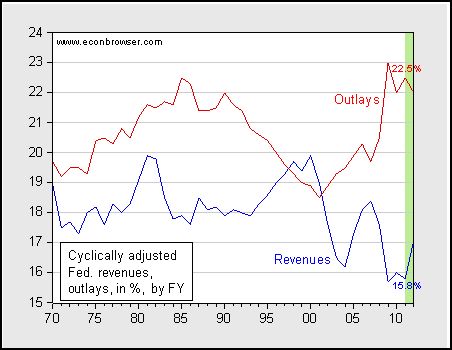People in the capital were thrilled by Twitter's role in 2009's Iranian uprisings. They probably weren't as excited this weekend when a new "hashtag" (topic) suddenly climbed toward the top of Twitter's trend list. It's not printable here, but the first word began with a "F." After that came the words "you" and "Washington."
The frustration's understandable, given Washington's bizarre monomania with applying the wrong solutions to the wrong problems. But there are more constructive ways to spend your day than tweeting four-letter words in the general direction of the Potomac River.
Tweet Dreams
The Twitter trend was started by the seemingly mild-manner media analyst Jeff Jarvis, who explains (warning: not work safe): "I listened to the latest from Washington about negotiations over the debt ceiling ...After dinner, I tweeted: "Hey, Washington *****, it's our country, our economy, our money. Stop f**ing with it."
Somebody responded by tweeting, "Hashtag it: #F***YOUWASHINGTON." Says Jarvis: "So I did ... And then it exploded as I never could have predicted."
It's easy to make too much out of this sort of thing. Twitter users aren't a cross-section of America. Too much can be made of its top trends -- which as of this writing include #Dear Taylor Swift, #Fantasy Football, and #Russell Brand. If hashtags alone can predict our political future, comedians will rule a nation of make-believe athletes who write love letters to teenaged country singers. (Somebody's probably muttering, 'You mean, like right now?')
The revolution will not be twitterized.
Genuine and Widespread Discontent
But there may be a larger phenomenon here, once that can be seen in polling numbers too. People are in despair for their future. Nearly 70 percent of Americans believe we're still in a recession (which, for many people, we are). Consumer confidence has plunged. Almost 40 percent of Americans believe we've entered a state of permanent decline, while nearly half expect another major recession in the next year.
And they don't believe anything's being done to stop it, since unemployment is still high and the views of the American Majority aren't being represented in this week's deficit discussions. More than 60 percent now say that the country's on the wrong track and unfavorable opinions of both parties are nearing record highs.
In other words, "F**k you, Washington."
Deal or No Deal?
Harry Reid's "grand bargain" won't include cuts to Medicare and Social Security. If he's successful (the president now supports him) that will mean that public outcries have once again thwarted attempts to cut these programs.
But Reid's proposal has problems, too. Like Boehner's plan, it would create a "supercommission" empowered to recommend drastic cuts, which would be submitted for an up-or-down vote with no modifications. (It's not clear if entitlements would be excluded from Reid's version.) There would be no tax increases under the Reid plan, either, which means the wealthy would continue their easy ride while other Americans bear the brunt of spending cuts. You can't fix our economic problems without increasing taxes, as this chart from economist Menzie Chinn shows:

It's all there. Spending rose sharply and tax revenues declined dramatically when George W. Bush took office. Both trends spiked again after the Great Recession. Why? First came the cost of two major wars, along with the Bush tax cuts. Then came the cost of (partially) repairing the damage left by a deregulated and unsupervised Wall Street, along with lost tax revenue as millions of people lost their jobs.
In the face of all this, here's Washington's plan: Continue the wars, preserve tax cuts for the wealthy, and fight Wall Street regulations. Hey, what was that hashtag called again?
Into Action
But despair not, ye infuriated Americans. As promised, here are three things you can do today (unless it's not Tuesday, July 26, in which case you can only do two of them):
1. Use this link to tell your Senators and Representatives that you oppose any deal that would cut Social Security, Medicare, or Medicaid, and ask them to raise the debt limit without any conditions attached.
2. Call your Senators and/or Members of Congress to tell them the same thing. (The link above should give you their contact information when you're done. It will ask you for a donation, too -- which, if you decide to give, would make four things you can do today.) If the phone numbers don't appear, they're publicly available.
3. If it's before noon on Tuesday, you still have time to find your Representative's local office and go there for a noon demonstration sponsored by a number of groups, including MoveOn and the Campaign for America's Future. You can find the nearest office here and then, as MoveOn says, "tell your Representative that they need to protect the programs working families rely on, and make the richest few pay their share."
The Progressive Change Campaign Committee summarizes the goals of these actions as 1) thanking the 81 Democrats in Congress who signed the Progressive Caucus letter opposing cuts to Social Secial, Medicare, and Medicaid, 2) urging other Democrats to oppose any plans that includes these cuts, and 3) telling Republicans to stop pushing for cuts to these programs. (They could add a few Democrats to that list, too.)
These actions could make a difference. And if these actions continue and grow, we may someday live in a country where the biggest trending hashtag on Twitter is "#thankyouWashington."
Taylor Swift might be disappointed, but the rest of us would be pretty happy.
(Abbreviated from an earlier version that was published in The Huffington Post)

